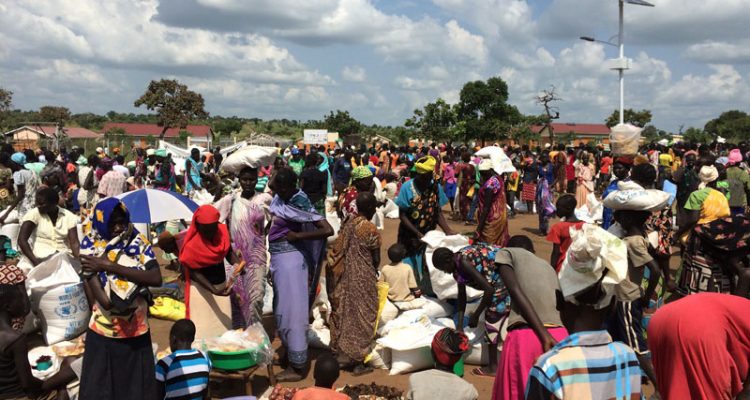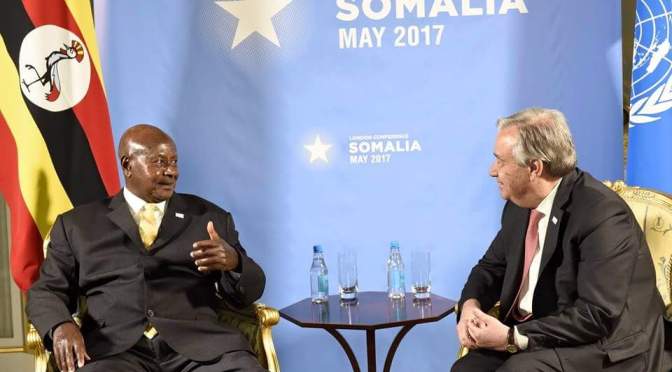This week, Uganda welcomes U.N. Secretary General Antonio Guterres and other high-level international guests and donors for the Refugee Solidarity Conference.
Conflict and hunger in South Sudan continue to send civilians across the border, and Uganda now hosts more refugees than any other country besides Turkey. With this week’s conference in Kampala, Uganda hopes to raise $8 billion.
The summit, scheduled for June 22 and June 23, 2017, will fundraise for the current refugee plight, recorded as the fastest growing refugee crisis in the world. The meeting will be attended by President Yoweri Museveni, UN Secretary General António Guterres and many high level dignitaries. DRT was listed as one of the organisations that would be participating in this summit.

Uganda is currently hosting over 1.2 million refugees that have created immense pressures to the country’s public resources such as health, education, especially in refugee-hosting districts. Uganda is the third largest host of refugees in the world after Turkey and Pakistan. Of the 1,250,000 refugees hosted in Uganda, 898,000 are from South Sudan, 288,000 are from Congo, 44,740 are from Burundi and 42,826 are from Rwanda.
In 2017, Uganda budgeted for $850million for refugees in the country however six months down the road (June, 2017) only 15% of this money has been received leaving a budget deficit of 85%. The government expects to realise an estimated $2bn from the summit fundraising. The money will be used to fund refugee response activities.
Meanwhile, local and national humanitarian actors facilitated by Oxfam Uganda and Uganda National NGO Forum developed a communiqué that will be presented at the summit as a part of the ‘Grand Bargain.’ In the Grand Bargain, local and national actors are demanding increased recognition for the roles they are currently playing in the sector but also be requesting for support to continue playing this role as agreed upon at a high level panel on humanitarian financing at the Agenda for Humanity (2016). This panel sought to ensure that 25% of humanitarian funding is channelled through local and national humanitarian responders.
AGENCIES





